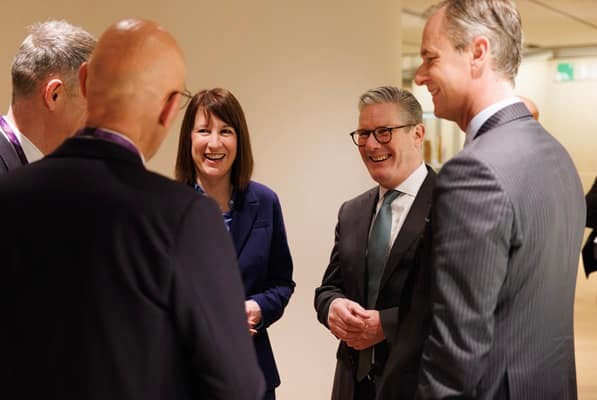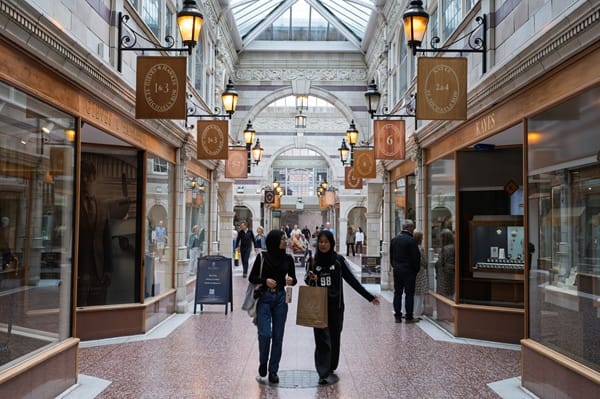Michelle Niziol, a female entrepreneur and former BBC Apprentice candidate has sent an open letter to the Chancellor.
Michelle’s Open Letter is asking the Chancellor to deliver a pro-growth Budget that restores confidence for businesses and households.
She warns that freezing tax thresholds or changing savings and property allowances could damage investment and hit entrepreneurs hardest.
Michelle calls for three priorities: make it easier for small businesses to grow, back women balancing business and childcare, and avoid sudden tax changes that create fear and stall investment.
Subject: Delivering a pro-growth Budget that restores confidence and empowers enterprise.
Dear Chancellor,
Thank you for taking the time to read this open letter. The decisions made in this Budget will influence how people live, work and build – and it’s vital that experience from the ground is heard and listened to, to help shape what comes next.
The challenge you face is immense: to restore stability to public finances without dampening the ambition and enterprise that will drive our recovery. Confidence is at its most fragile, businesses are holding back, investors are cautious, and families are tightening their belts.
I’ve spent the past two decades building businesses from the ground up. No silver spoon, no safety net – just resilience, risk and relentless hard work. That’s the story of thousands of entrepreneurs across this country. We’re not asking for handouts, just a fair playing field and a government that trusts us to build.
In recent months, the conversation has focused almost entirely on what more can be taxed. The Treasury faces a £30 billion shortfall, and raising revenue will be unavoidable, but how we do it matters. Reports suggest over a hundred possible tax changes, from ISA adjustments to new charges on landlords and the self-employed. I welcome the clarity that income tax rates will not now rise, following improved OBR forecasts – but the alternative options on the table, including freezing or lowering income-tax thresholds, still risk deepening the squeeze. Freezing or lowering thresholds may feel subtle, but it effectively pushes people into higher tax bands even when their real earnings haven’t grown, squeezing households already under strain.
For many, this isn’t about avoiding contribution – it’s about keeping confidence alive when every signal seems to say the opposite. An income-tax rise may no longer be happening, but equivalent revenue-raising measures through threshold freezes could still hit the same people hardest: the self-employed, small company directors and those reinvesting every spare pound back into their businesses. These are the people who worked through the pandemic with no furlough and no grants – just grit and determination.
The same goes for savers and investors. Reducing ISA allowances or raising dividend tax sends a powerful message – that saving and long-term planning are being penalised rather than encouraged. A strong economy needs people who invest in order to secure their future without the need for hand-outs.
And for women, this challenge runs even deeper. We’ve made real progress in female entrepreneurship, yet barriers remain – from access to funding to balancing business with childcare. That’s why I’ve long called for childcare to be treated as a legitimate business expense. It’s not just about fairness; it’s smart economics. Supporting working parents, especially mothers, means unlocking thousands of new businesses, jobs and ideas.
The property market must also be part of this story. Property is not just an investment class for the wealthy – it’s how millions of families build security, save for retirement and create a legacy. If taxation on homes becomes punitive, mobility will fall, supply will tighten, and confidence will collapse. Talk of a “mansion tax” or wider property levies only adds to the uncertainty, risking ripple effects far beyond high-value homes. For many, property is the foundation of long-term financial security, not a luxury asset.
If I could offer three simple principles, they would be these:
1. Make it easier for small businesses to grow. Simplify the rules, reduce red tape, and let entrepreneurs reinvest more of what they earn into jobs, innovation and growth.
2. Back entrepreneurs, especially women. Recognise the realities of the “sandwich generation” – women running businesses while caring for both children and ageing parents. Make childcare tax-deductible, improve access to capital, and design policies that reflect modern working lives.
3. Protect stability. Avoid sudden or heavy-handed tax changes that create fear and freeze investment and longer-term planning.
Chancellor, the people who drive this economy forward don’t need another obstacle; they need partnership, trust and the confidence to keep building. If this Budget focuses on enabling growth rather than extracting from it, it could mark the start of something powerful – a Britain that once again rewards those who take risks, create opportunity and build something from nothing.
I’d welcome the opportunity for open dialogue on how policy can better support the people building, employing and investing in Britain’s future.
Yours Sincerely,
Michelle Niziol
Entrepreneur, property expert and advocate for women in business







